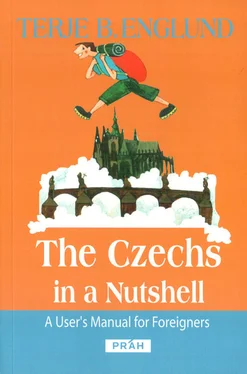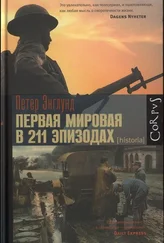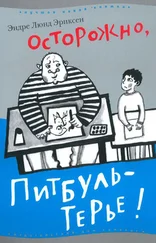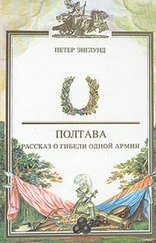Yet, in the forty years of dictatorship, Sokol never ceased to exist as a fixed concept. Parents sent their children to do gymnastics in the Sports club , but called it Sokol when speaking about it at home. The exercises still took place in the original Sokolovna — the Sokol buildings, which also housed events ranging from Christmas bazaars to pet exhibitions and discos. In rural areas, the local Sokolovna often doubled as town hall (as they still do), so, when Sokol officially re-emerged in 1989, the changes had mostly formal character.
The once-so-proud Falcon does, however, show unmistakable signs of wear and tear. Many children still attend gymnastics after school, but it’s no longer a mass organization. Its paramilitary base looks pretty outdated (some wits joke that Adolf Hitler once applied for Sokol membership, but was rejected because he wasn’t Czech!). That also goes for its overt collectiveness and cadaver-discipline, which is none too palatable in a nation struggling to forget its communist past.
Nevertheless, Sokol must be credited for one everlasting success: this relatively small nation of 10 million beer drinkers (see: Alcoholics; Hospoda) would probably never have reached such impressing results in the international sports arenas if Tyrš and Fügner not had contributed to the national emancipation by turning physical education into a mass movement. And neither would the Czechs still be greeting each other with Sokol’s traditional cheer: Nazdaaaar!
Imagine you are at the airport. Suddenly an announcement sounds from the loudspeakers: Mr. Frog, Mr. Hippopotamus and Mrs. Pouched Marmot, please come to the information counter. Mr. Scratch-His-Head, Ms. Jump-On-The-Field and Mr. Don’t-Eat-Bread are waiting for you .
Very likely, you’ll assume somebody is practising a weird sense of humour. However, if this happens in the Czech Republic, it may not be a joke at all. It simply reflects the fact that probably no other nation on the planet can boast such an incredible number of peculiar surnames.
Most of the approximately 40,000 surnames currently used by Czechs originated in the period between the fourteenth and the eighteenth centuries. The habit of using a second name to express that you belong to a family was introduced by the nobilityand then spread to the middle classes and free farmers, whose number rapidly increased when the AustrianEmpire abolished serfdom in 1781. Five years later, Emperor Joseph II issued a decree ordering every single citizen in the empire to take a surname, which was to be hereditary.
For most Czechs, this didn’t represent any great problem, because they had already been given a surname when they were christened for several centuries (even at this point, women had the suffix -ová , equalling the genitive in English, attached to their father’s and later husband’s names). For the German-speaking Jews, however, it was not all that easy. For obvious reasons, they did not acquire informal surnames by baptism, and even though they were known to be among the Habsburg Empire’s most fervent supporters, only the eldest son in the family was allowed to marry and have a family of his own.
As a result of Emperor Joseph’s decree, the Jewswere given surnames by the authorities, so it was small wonder that corruptionflourished. The witty writer Pavel Eisner documented many cases where affluent people received impressive names such as Saphir, Diamant and Edelstein , while the poorest ones ended up as Regenschirmbestandteil, Nasenstern and even Notdurft .
The largest group of surnames used by Czechs today have their origin in different occupations and crafts. As nearly every other European nation, Czechs are also named Krejčí (Tailor), Truhlář (Carpenter), Kovář (Smith), Soustružník (Turner), Řezník (Butcher), Mlynář (Miller), Kramář (Shopkeeper), Malíř (Painter), Muzikant (Musician) and Bubeník (Drummer).
In the nineteenth century, however, the influx to Bohemia’scities was so enormous that these names soon became ubiquitous. Therefore, to distinguish among individuals, people were named after the product they made or the tools they used in their crafts. Thus, tailors became Jehla (Needle) and Náprstek (Thimble), carpenters Kladivo (Hammer) and Sekyra (Axe), blacksmiths Palice (Sledgehammer), bakers Chlebíček (Sandwich) and Rohlík (Croissant), and innkeepers Vomáčka (Sauce), Kaše (Gruel), Voda (Water) and Pivko ( Beer).
As the leading onomatologist Dobrava Moldanová points out, almost all of the objects we use in everyday life have produced Czech surnames. That goes for mints, buildings, shoes, vehicles, weapons, musical instruments, and even pieces of clothing, such as Kaftan (Caftan), Rubáš (Shroud) Kabát (coat) and Kalhoty (Trousers). Abstracts like Válka (War) Láska (Love) Svatba (Wedding) and Masopust (Carnival) are also highly represented, not to mention animal names.
These surnames are so frequent that it’s possible to compose an entire zoological classification table based on an average Czech telephone book. It’s simply unbelievable how many human hedgehogs ( Ježek ), bullocks ( Volek ), hares ( Zajíc ), frogs ( Žába ) and entire flocks of birds ( Drozd, Holub, Vorel, Skřivan, Čermák ) you can find in Bohemia and Moravia.
Even tropical animal names abound. Many Czech families carry surnames like hippopotamus ( Hroch ), ostrich ( Pštros ) and elephant ( Slonek ). This does not mean that hippos, for instance, once used to swim in the Vltava. Instead, many buildings in Prague’s older parts were named after these exotic creatures. When the Czechs started to leave the countryside and settled for work in the capital, they simply assumed surnames from the buildings where they lived.
However, the most unique and fantastic Czech surnames are those created from verbs. In other words, they describe an action. Take, for instance the common surname Vyskočil , which literally means jumped out . It’s hard to say who jumped out of what, but Moldanová the onomatologist believes it originated when the first Vyskočil jumped out of a window during a brawl in the local hospoda . The stories behind surnames such as Dupal (Stamped his feet), Navrátil (He who returned), Stejskal (He who grumbled), Pospíšil (He who was in a hurry), or Stojespal (He who slept standing on his feet) are less clear.
Logically, when people received surnames because of something they did, they could also perfectly well receive surnames because of something they didn’t do, as, for instance, Nesnídal (He who didn’t eat breakfast) and Netušil (He who didn’t suspect anything).
The imaginativeness and keen humour of Czech surnames is simply unique. Nobody has expressed the magic of Czech surnames better and more precisely than Pavel Eisner, who knew Czech culture as thoroughly as its German and Jewish counterparts:
“The Czech nation’s history manifests its tragedy by forcing tragic situations and experiences on a people whom nature has equipped with a large, mental supply of tragedy. Therefore, they are far more than other nations susceptible to life’s bright sides, to smile and laughter, and to mockery and ridicule.”
The Hungarianwriter Péter Esterházy once said that a place in worldliterature only is available to those countries that can boast at least one work with such reputation that it bulldozes the way for others. Where Czech literature is concerned, there can be no discussion that Jaroslav Hašek’s four books about the Soldier Švejk represent such a bulldozer. Since their publication in the early 1920s, the Švejk books have been translated into more than 50 languages, and the slack-jawed and boozing anti-hero is still considered to be one of the Czechs’ largest contributions to world literature.
Читать дальше








![Theresa Cheung - The Dream Dictionary from A to Z [Revised edition] - The Ultimate A–Z to Interpret the Secrets of Your Dreams](/books/692092/theresa-cheung-the-dream-dictionary-from-a-to-z-r-thumb.webp)



